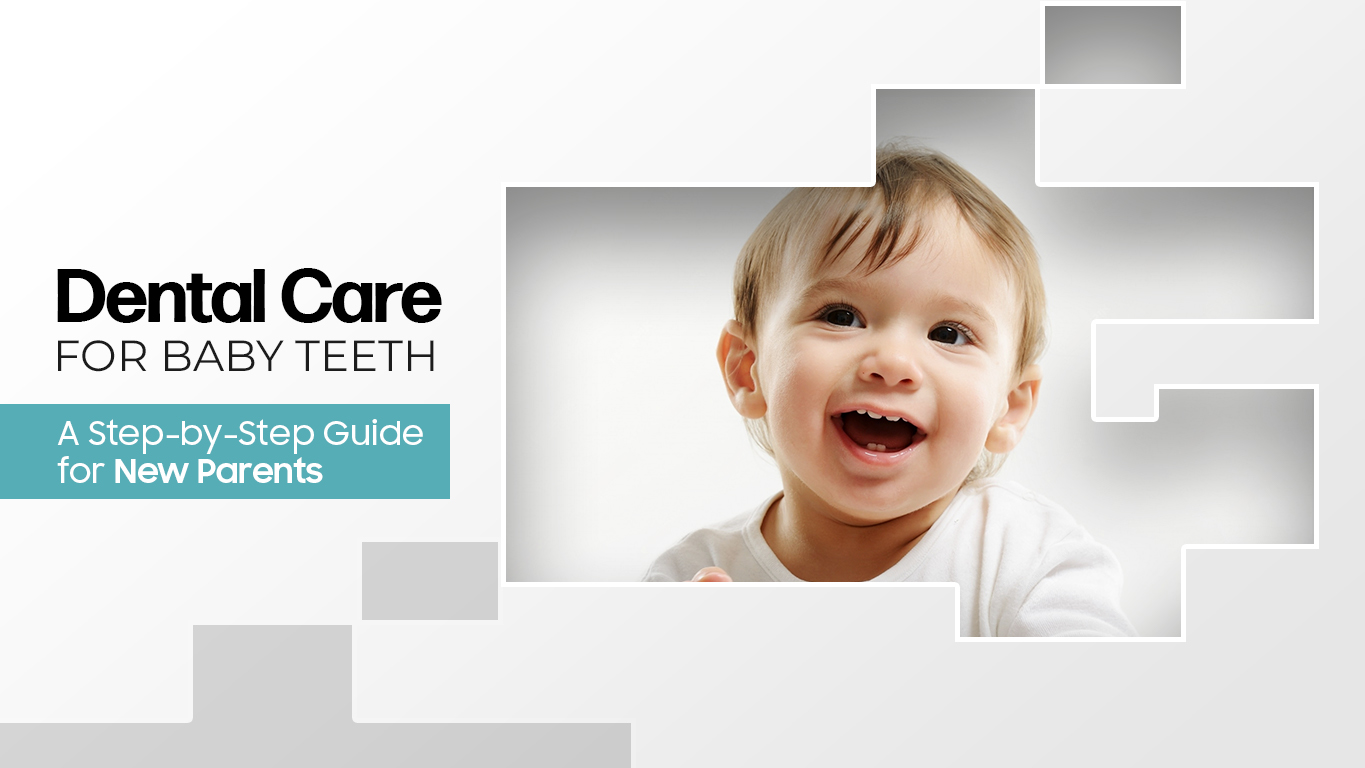Dental Care for Baby Teeth: A Step-by-Step Guide for New Parents

Your baby’s first teeth will start coming in around six months of age. While they are just temporary “baby” teeth, they are important for your child’s nutrition, speech development, and saving space for permanent teeth. Caring for your baby’s teeth early helps set them up for a lifetime of good dental health. Here is a step-by-step guide to caring for your baby’s teeth.
Step 1: Start Cleaning Immediately
As soon as you see your baby’s first tooth emerge, it’s time to start cleaning. Use a soft, infant-sized toothbrush and water only. Brush gently in circular motions along the gum line twice a day – after breakfast and before bedtime. This gets your baby used to having their teeth brushed and removes bacteria that can lead to cavities.
Step 2: Introduce Fluoride Toothpaste at 18 Months
Around 18 months, switch to a rice-sized amount of fluoride toothpaste. Fluoride strengthens enamel and prevents cavities. Use a pea-sized amount until age three and then increase to a small smear. Supervise brushing until your child can spit after brushing.
Step 3: Make Brushing Fun
Keep brushing interesting by singing songs, making faces in the mirror, and letting your child pick out their toothbrush. Distraction helps little ones get used to brushing. Offer lots of praise to help make it a rewarding experience.
Step 4: Practice Proper Brushing Technique
The proper tooth-brushing method is to angle the brush towards the gum line and brush in short, gentle circles, covering all surfaces of the teeth. Show your child how to do this themselves when they gain the dexterity, usually around age 2 or 3. Correct improper brushing to prevent damaging gums.
Step 5: See a Paediatric Dentist Early On
The Australian Academy of Paediatric Dentistry recommends your child’s first dental visit by age one or within six months of their first tooth. This gets them comfortable with dental visits and allows the Kids dentist to assess for problems like Misaligned bites or teeth grinding. Regular dental visits ensure your child’s smile stays healthy.
Step 6: Avoid Sleeping with Milk
Never put your baby to bed with a bottle, as the milk sugars can cause severe tooth decay. If they fall asleep nursing, be sure to wipe their teeth with a damp cloth when finished. Avoid juice or sugary drinks in Sippy cups. Only give water between meals.
Step 7: Watch Teething Symptoms
Teething can cause tender gums, excessive drooling, and chewing behaviors. Provide cold teething rings or washcloths for your baby to gnaw on for relief. The pressure soothes their gums temporarily. Avoid teething gels as they can numb the gums long-term.
Step 8: Protect Teeth from Injury
Once mobile, babies like to explore their environment, but this can lead to dental injuries. Use corner guards, baby gates, and outlet covers to baby-proof your home. During play dates, avoid toys that could hit teeth. Helmets and mouthguards are important when your child is old enough for contact sports.
Conclusion
Start dental care as soon as the baby’s first tooth appears. Lay the groundwork for healthy permanent teeth by brushing thoroughly with fluoride toothpaste, visiting a dentist regularly, avoiding damaging habits like juice at bedtime, and protecting teeth from trauma. Follow these steps, and your little one will have a sparkling, cavity-free smile! Visit us at Springvale Dental Clinic for all your child’s dental services.



